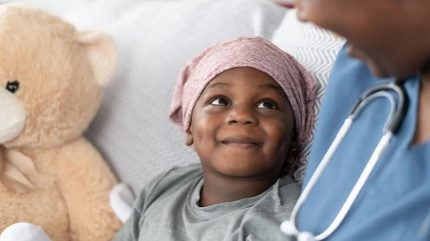
The University of Birmingham has launched the global ‘Glo-BNHL’ clinical trial assessing new therapies to treat paediatric patients with B-cell non-Hodgkin lymphoma (B-NHL).
This trial is currently active in the UK and is set to expand to 45 sites in 19 countries, including in Asia, North America, Australia, and Europe.

Discover B2B Marketing That Performs
Combine business intelligence and editorial excellence to reach engaged professionals across 36 leading media platforms.
It aims to leverage ‘advanced’ statistical methods to swiftly assess the treatments with a minimal number of participants.
Ineffective treatments will be quickly replaced, while successful ones could be recommended for standard care in the National Health Service (NHS) and potentially worldwide, expediting the usual lengthy trial and regulatory approval process, the university noted.
Glo-BNHL is a collaborative effort with international partners such as Innovative Therapies for Children with Cancer (ITCC) and European Intergroup for Childhood NHL (EICNHL) in Europe, and Australia and New Zealand Children’s Haematology and Oncology Group (ANZCHOG), and Children’s Oncology Group (COG) and C17 in North America. The trial aims to find better treatments and ultimately a cure for this rare paediatric cancer.
Supported by funding from Cancer Research UK and Fight Kids Cancer, the trial has already secured over £20m ($20.7m) from pharmaceutical companies.

US Tariffs are shifting - will you react or anticipate?
Don’t let policy changes catch you off guard. Stay proactive with real-time data and expert analysis.
By GlobalDataIt is further bolstered by Birmingham’s PHTA Industry Trials Hub, ‘ensuring’ the trial is conducted with market authorisation in focus.
University of Birmingham Cancer Research UK Clinical Trials Unit director and Glo-BNHL trial chief investigator Professor Amos Burke said: “Launching the first sites for Glo-BNHL is a hugely important moment and a step change for children with rare disease like relapsed/refractory B-NHL. This trial uses a new design, developed with ongoing input from our patient advocates.
“The design has been supported by regulators and pharma companies and the result is a trial that offers the possibility of better chances for children with relapsed or refractory B-NHL.”
In August last year, the University of Birmingham reported ‘promising’ results from a Phase II trial of ILB, a drug developed with TikoMed, for treating amyotrophic lateral sclerosis (ALS).



